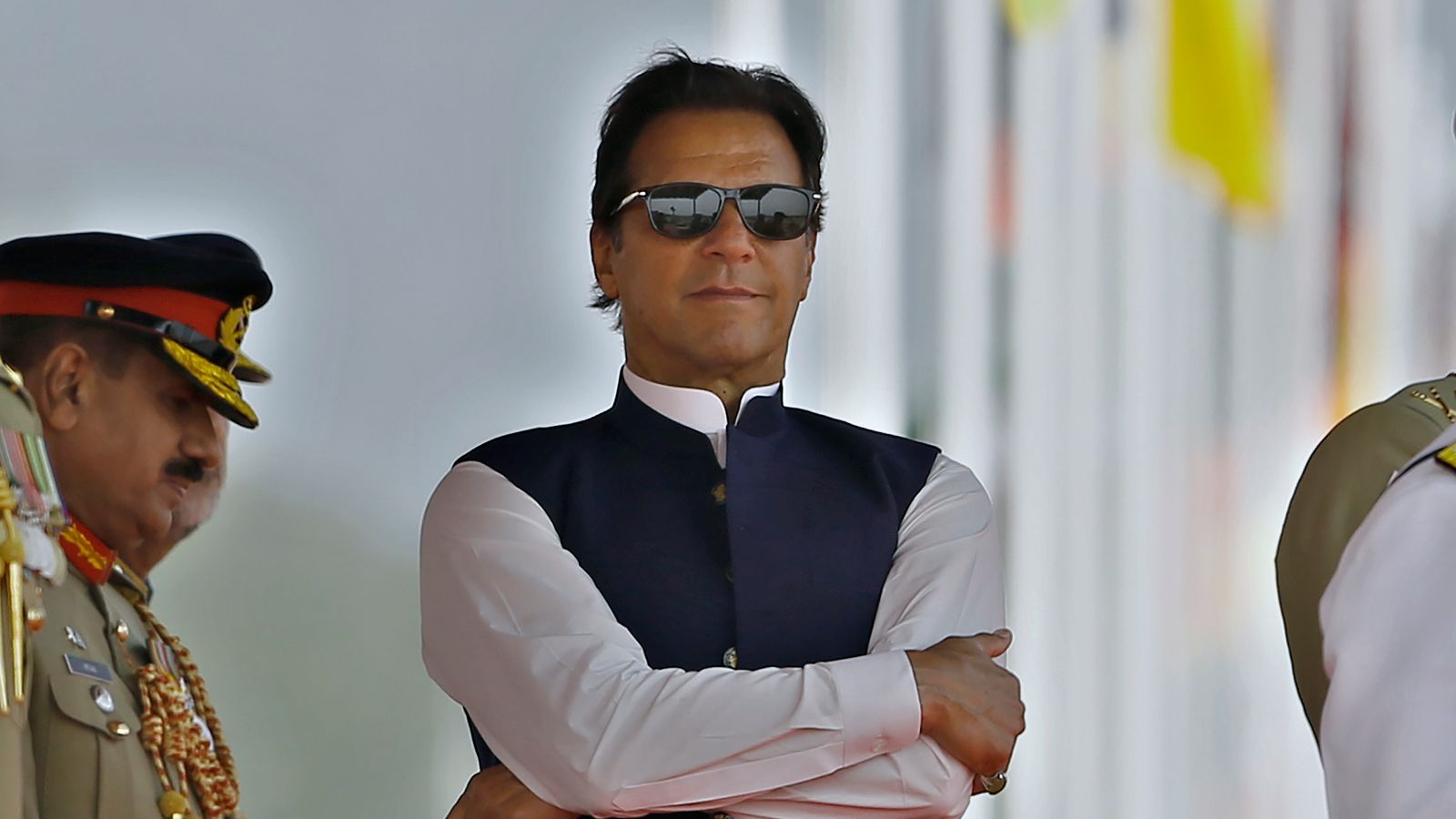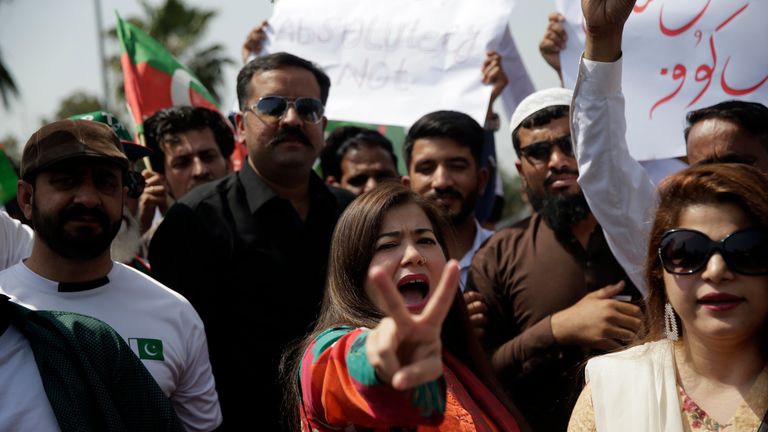Pakistan’s Prime Minister Imran Khan is facing a no-confidence vote in parliament this morning, one he is expected to lose.
It comes a day after Pakistan’s Supreme Court blocked his bid to stay in power, ruling that his move to dissolve parliament and call elections early was illegal.
This set the stage for today’s vote, expected at 6.30am UK time, with opposition politicians saying they have the 172 votes in the 342-seat assembly needed to unseat Mr Khan.
But the former cricket star turned conservative Islamic politician is still standing firm, vowing on Friday that he “will not accept an imposed government”.
Read more: Death threats and dirty tricks not enough to deter Imran Khan ahead of no-confidence vote
‘As good as gone’
Mr Khan surged to power in 2018, but recently lost his parliamentary majority, and a prominent newspaper recently described him “as good as gone”.
The embattled prime minister has urged his opponents to take to the streets in support.
“All of you will have to come out on Sunday after evening prayer to protest, to peacefully protest … I again say that should never indulge in violence,” he said. “It should be a peaceful protest.”
Opposition politicians put forward a no-confidence motion in parliament last Sunday and in response, Mr Khan dissolved parliament and called a snap election – and it was this move that was deemed unlawful.
The vote was tabled over what the opposition has called the prime minister’s economic and political mismanagement, and they blame him for failing to revive the economy and tackle corruption.
No prime minister has finished a full five-year term since independence from Britain in 1947.
Accusations of opposition colluding with US
Mr Khan has accused his opponents of colluding with the US to remove him, but has provided no evidence.
He said he wants the Supreme Court to investigate communications between a senior US diplomat, whom he has not named, and Pakistani diplomats, which he claims show evidence of collusion.
He alleges the US government wants him gone because of his foreign policy choices in favour of Russia and China. He visited Moscow on 24 February and held talks with Vladimir Putin – the same day tanks rolled into Ukraine.
The US state department has denied any involvement, with spokeswoman Jalina Porter telling reporters on Friday that there was “absolutely no truth to these allegations”.
What could happen next?
If the opposition wins the vote, it is up to parliament to choose a new head of government, possibly the leader of the opposition, the brother of former prime minister Nawaz Sharif, Shahbaz Sharif.
He would hold office until October 2023, when a new election is scheduled to be held.
Nawaz Sharif was disqualified from holding office after he was convicted of corruption and named in the so-called Panama Papers.
If the opposition are unsuccessful, early elections would be called.


